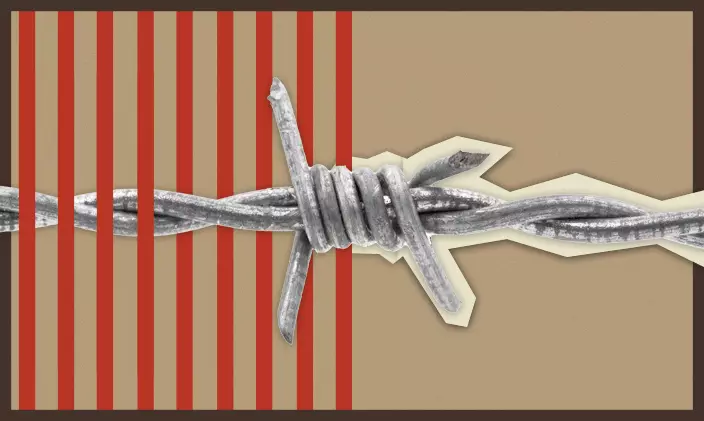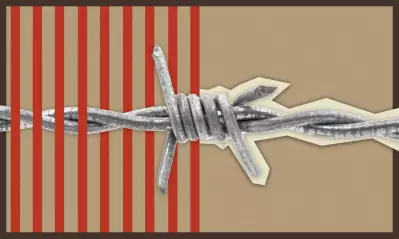Articles > Criminal Justice > Corrections careers in prisons, jails and detention centers
Corrections careers in prisons, jails and detention centers
This article was updated on April 15, 2024.

Written by Michael Feder

Reviewed by Christina Neider, EdD, Dean of the College of Social and Behavioral Sciences

When people think about criminal justice , they might think of the monologue at the beginning of a popular TV show or think that it’s just about lawyers or the police. However, there are other paths in the criminal justice system including corrections careers.
Those who want to make a difference and contribute to this vital aspect of the system have plenty of options — as corrections officers, as social workers , in medical services and more.
Let’s explore common corrections careers at every level of the system.
Types of corrections careers
When we talk about corrections careers, we usually discuss three main types of facilities: prisons, jails and detention centers. Each serves a specific purpose in the criminal justice system and supports different career paths. And each has its own set of resources available to help promote safety and security among detainees, officers and society at large.
Criminal justice and corrections careers aren't just about incarceration. They're also about rehabilitation. If helping those in need of rehabilitation interests you, or if you have questions about what to do with a criminal justice degree , the following careers are often a starting point.
Careers in prison
Prisons are primarily long-term institutions for the incarceration of convicted felony offenders. They typically hold larger populations based on the length of sentences being served. There are federal and state facilities with various levels of security and focus of population management.
- Penitentiaries, more commonly known as prisons, are designed for long-term incarceration and hold offenders with life sentences or death sentences.
- Federal institutions and facilities range from maximum security to minimum custody that hold nonviolent offenders.
- Correctional institutions offer programs to assist with rehabilitation of felony offenders.
Prisons employ people for roles ranging from direct oversight of prisoners to support positions from corrections officers and more. Some of the most common applications for a Bachelor of Science in Correctional Program Support Services or criminal justice degrees include the following roles:
- Correctional officer: Correctional officers (COs) enforce the rules and keep order within the prison. They supervise prisoners’ activities and regularly inspect the facility to ensure it meets security and safety standards. In some cases, they may escort and transport people in custody between the prison and other locations. COs need to complete training at an academy.
- Federal prisons often require entry-level COs to have an Associate of Arts in Criminal Justice. The earning potential for correctional officers varies widely between state and federal prisons. As of May 2023, pay for this position ranged between $38,340 and $87,250
, with a median wage of $53,300, according to the U.S. Bureau of Labor Statistics (BLS).
- Social services manager: Many prisons employ social workers
or social services managers
to help inmates integrate into society upon release. They can also provide counseling services. To prepare for this role, a bachelor’s degree is typically required
. Social services managers who want to work in the corrections system might pursue a Bachelor of Science in Correctional Program Support Services. In May 2023, social services managers earned between $38,340 and $87,25
0, with a median wage of $53,300, according to BLS.
- Case manager: Case managers (sometimes known in the field of corrections careers as correctional treatment specialists) develop plans for parolees and probationers to follow. They often use psychological tests to evaluate inmates prior to their release. Case managers will also write case reports to cover the inmate’s history and advise parole boards on the likelihood of them committing another crime. They may recommend community-based corrections programs for inmates who qualify.
Like social services managers, case managers need a bachelor’s degree. Requirements can vary by jurisdiction, but some treatment specialists can make their way into the field with a Bachelor of Science in Correctional Program Support Services.
Salary ranges are not specific to students or graduates of University of Phoenix. Actual outcomes vary based on multiple factors, including prior work experience, geographic location and other factors specific to the individual. University of Phoenix does not guarantee employment, salary level or career advancement. BLS data is geographically based. Information for a specific state/city can be researched on the BLS website.
Careers in jail
Jails typically detain people awaiting trial or sentencing and those facing shorter sentences. Local law enforcement , such as sheriff’s offices or corrections departments, usually operate and staff jails. Compared with the longer duration of prison sentences, jails hold individuals serving punitive sentences up to one year. They also provide pretrial detention of individuals based on criminal history or seriousness of the offense until their court proceedings are resolved. Jails typically simply hold inmates until their case’s resolution.
Alomg with correction officers, county and city jails might also be staffed by corrections specialists, jail officers, deputy jailers and more. To prepare for these roles, individuals can learn relevant skills through an associate degree in Criminal Justice.
Careers in detention centers
Often, detention center is an umbrella term describing facilities that temporarily house and rehabilitate offenders under the age of 18 or those who are awaiting immigration hearings and possible deportation. Ultimately, detention centers’ primary goal is to educate and rehabilitate offenders so they can rejoin society.
Detention centers serve a specialized mission pertaining to the rehabilitation of juveniles or maintenance of individuals being detained pending immigration hearings and potential deportation. For example, detention centers can refer to facilities that hold immigrants while their legal status is determined.
Detention facilities hire many of the same professionals that jails and prisons do, although their individual job duties can differ. For example, juvenile corrections versus adult corrections differs in training based on the forms of management and rehabilitation. Social workers and caseworkers are common careers in juvenile detention centers too.
Learn about degrees in criminal justice for corrections careers and more
Now that you have an understanding of the types of correctional facilities and the opportunities available within them, learn more about whether a career in criminal justice is right for you. If you’re interested in learning more about criminal justice degree programs at University of Phoenix, here are a few options to explore:
- Associate of Arts in Criminal Justice — Learn how the criminal justice and corrections systems operate — and prepare for a career that allows you to support the agencies, systems and procedures involved in criminal justice with this online criminal justics associates degree
.
- Bachelor of Science in Criminal Justice Administration — This online bachelor of science in criminal justice administration
program prepares students with skills necessary for administrative roles in law enforcement, criminal courts and corrections. This can help prepare students for careers as detective sergeants, loss-prevention managers, police shift commanders and more.
- Bachelor of Science in Correctional Program Support Services
— Get ready for a career at the intersection of community support, human services and criminal justice. This program equips you with skills to manage cases, facilitate programs and address the needs of people impacted by the criminal justice system.
The Bachelor of Science in Correctional Program Support Services is an educational degree program that provides a foundation or knowledge in the field of correctional program support services. This program does not prepare students for any type of professional certification or licensure as a correctional officer, social worker or counselor.
The University’s Criminal Justice programs are educational degree programs. These programs do not prepare students to become certified peace officers. For those interested in pursuing a career in law enforcement, in corrections or as a peace officer with any particular local, state, federal, tribal or international agency, there are numerous additional qualifications (and often disqualifications), depending on the position. Before enrolling in a criminal justice program, potential students are highly encouraged to check with the relevant agency for a complete list of position requirements and disqualifications.

It should be remembered that the majority of individuals involved with the criminal justice system are individuals that have made mistakes but are very capable of being rehabilitated and reentering society as productive citizens.
Franzi Walsh, DBA, MPA
Associate Dean of Criminal Justice, Public Administration, and Security, University of Phoenix

ABOUT THE AUTHOR
A graduate of Johns Hopkins University and its Writing Seminars program and winner of the Stephen A. Dixon Literary Prize, Michael Feder brings an eye for detail and a passion for research to every article he writes. His academic and professional background includes experience in marketing, content development, script writing and SEO. Today, he works as a multimedia specialist at University of Phoenix where he covers a variety of topics ranging from healthcare to IT.

ABOUT THE REVIEWER
Christina Neider is the dean of the University of Phoenix College of Social and Behavioral Sciences. Neider’s career spans more than 30 years in academia, healthcare and the U.S. Air Force. She has held several academic leadership roles at University of Phoenix, and she is the Vice President of membership for the Arizona Chapter of the Healthcare Information and Management Systems Society.
This article has been vetted by University of Phoenix's editorial advisory committee.
Read more about our editorial process.


